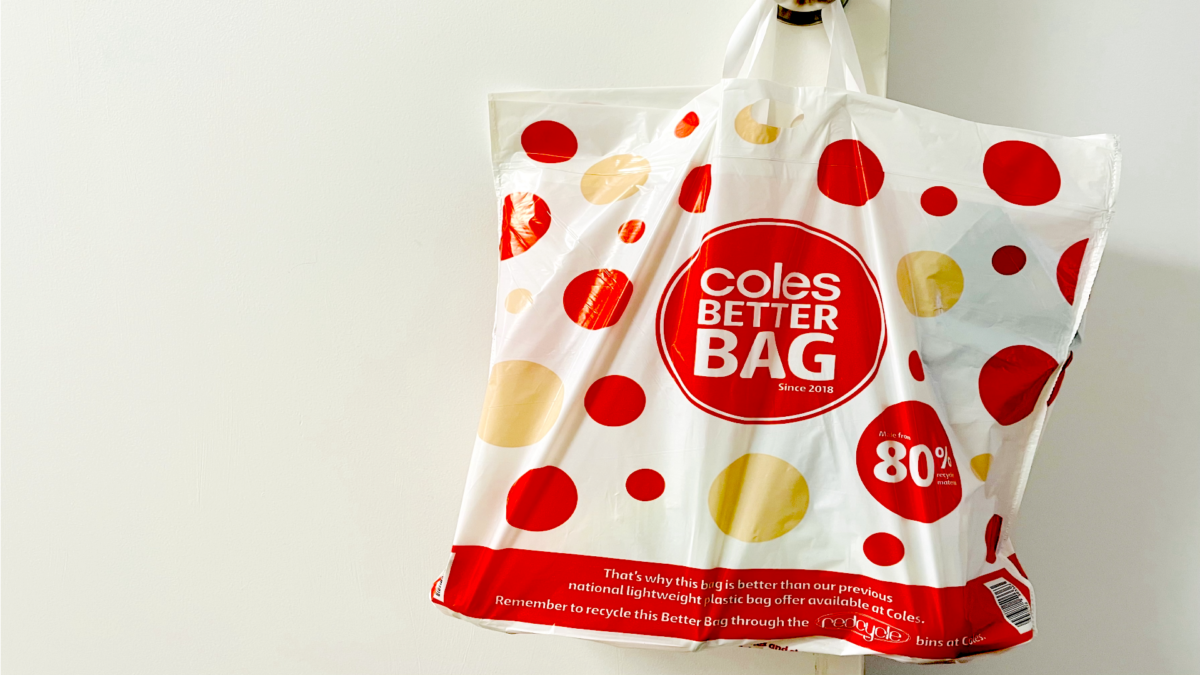


About 12,400 tonnes of soft plastic from suspended recycling program REDcycle could fall under the control of Coles and Woolworths as the two supermarket giants offer to pick up the bill.
REDcycle, Australia’s largest soft plastic recycling scheme, paused its activities in November 2022, after The Age newspaper revealed it had been stockpiling plastic for years rather than recycling.
The investigation revealed thousands of tonnes of plastic kept across 32 storage sites across New South Wales, Victoria and South Australia, as well as 5,200 tonnes of plastic stored across NSW.
The business has partnerships with 2,000 supermarkets across the country with dedicated collection bins placed in Coles and Woolworths.
It claims to have collected around 5.4 billion pieces of plastic since being established in 2011.
Coles and Woolworths on Friday said by taking on the responsibility for the stockpiles, they hoped to help prevent soft plastics from ending up in landfill. An interim strategy, such as storing material until it can be viably processed for recycling, will be underway.
“We know Australians have been let down,” said Brad Banducci, Woolworths Group CEO in a joint media release, “We were very disappointed to learn that REDcycle hasn’t been recycling the soft plastics they collected from our stores, and we are working to make it right.”
“Coles and Woolworths have taken this step to provide reassurance to the public that the soft plastics they took the effort to deposit in REDcycle’s bins won’t be unnecessarily sent to landfill.”
“We know this may take some time. We hope REDcycle will allow us to help get the best outcome for the environment and restore community trust in our recycling systems.”
Matt Swindells, Coles Chief Operations and Sustainability Officer, said Coles was “deeply disappointed” with the unrecycled stockpiles.
It aimed to collaborate with governments and industry to find workable solutions so that customers can “resume the good work they’ve done over the past decade, in sorting their soft plastic and knowing that it will be recycled.”
REDcycle has yet to respond to the offer.
The offer comes after the NSW Environment Protection Authority (EPA) issued “clean-up orders” on Feb. 3 to Coles and Woolworths, which faced three choices: dumping the plastics into landfill, exporting it overseas, or reprocessing the plastic for future use.
“Thousands of customers diligently collected soft plastics and dropped them into their local supermarket’s collection bin because they trusted their waste would be diverted from landfill and recycled,” NSW EPA Chief Executive Tony Chappel said.
REDcycle said the issue was caused by unforeseen challenges including a skyrocketing volume of returned plastic, and recycling partners refusing to accept, and process collected items.
One such partner was Close the Loop, the user of the soft plastic, which had to temporarily suspend its activities after a fire damaged its factory.
Collectively, Coles and Woolworths have paid more than $20 million to REDcycle over the last decade.
The removal and disposal of the stockpiles will cost Coles and Woolworths at least $3.5 million.
The money will be paid for from a Soft Plastics Recycling Contribution Fund to which Coles and Woolworths will each provide an initial multi-million-dollar contribution.
Currently, Australia lacks the facilities to recycle the volume of soft plastic stored by REDcycle, and it is unlikely other countries will agree to import contaminated plastics.
“To date, the supermarkets have not been given access to the stockpiled material,” a spokesperson for the two supermarkets said.
“They will need to assess whether any of the soft plastic has degraded to an extent where it is no longer suitable for reprocessing. Coles and Woolworths will work to recycle as much of the material they are given as possible.”
The government has invested $60 million in upgrading the recycling of soft plastics and other hard-to-recycle commodities as part of a quarter-billion-dollar pledge to upgrade recycling facilities around the country.
Only about 13 percent of plastics are recycled in Australia and with major waste export markets like China closing their borders, there are too few local operators to handle the tonnes of waste produced annually.
Meanwhile, the Australian government has set a new goal to end plastic pollution by 2040.
NSW became the last Australian jurisdiction to ban single-use shopping bags—some 13 years after South Australia pioneered the ban.
Many retailers continue to hand out free plastic bags to shoppers, however, replacing single-use plastic bags with similar but thicker alternatives to comply with government legislation.
